I’ve always been fascinated by the boutis quilts of southern France.
Once upon a time, I told myself that I was going to make my own boutis-style coverlet by hand, some day. A big one!
I’ve pretty much abandoned that plan – my to-do list will already outlive me, and I have too many items higher up on it – but I’m still in love with the style. I enjoy reading about it, exploring it now and then, and whenever a video comes my way that focuses on boutis, I tend to devour it.
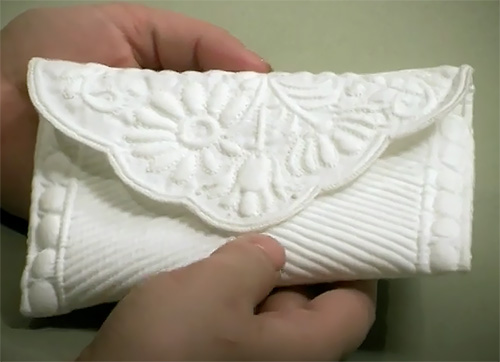
Boutis is a style of quilt that involves a whole cloth – often cotton batiste – that is not pieced the way we think of a traditional quilt. Instead, two large layers of cloth are sewn together using small quilting stitches (running stitch, for all practical purposes) and sometimes, simple embroidery stitches (depending on the design and designer). Then the areas inside the design are stuffed, from the back, with cotton yarn, creating a cloth with a somewhat dimensional, textured design on it.
The technique and style is not isolated only to southern France, but the boutis quilts of the Provençal region of France are especially well known and notably beautiful.
The whole approach to creating a coverlet this way – stuffed quilting, pretty much – is not new. The oldest extant quilt in history, in fact, was created similarly. Known as the Tristan Quilt, it originated in Italy (Sicily) and is composed of 14 panels that narrate the romantic tragedy of Tristan and Isolde, a popular medieval tale that predated the Arthurian legends.
Unlike boutis of today – which often uses batiste – the Tristan Quilt is made of linen and it is embroidered with white and brown wool. It is padded with cotton wadding. You can view the Tristan Quilt here on the V & A website. (Now, that’s a fun rabbit hole!)
Like I mentioned above, I find boutis fascinating. And I tend to devour videos and other information on the technique that happens to cross my path.
Boutis Video – Great Instruction!
Since the technique is an important part of textile history, and since it involves embroidery as much as quilting, I thought you might find it interesting, too.
For your weekend entertainment, then, I thought I would share this excellent video on boutis with you. It takes the viewer step-by-step through creating a small boutis pouch. It’s a very thorough video, and it is accompanied by a good English translation.
I hope you enjoy it! Who knows? Maybe it will light an unquenchable fire in you to create your own boutis coverlet – and maybe your coverlet will make up for the one I will never make! 🙂
Have a wonderful weekend!



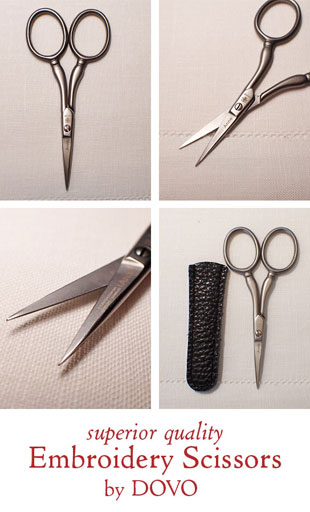
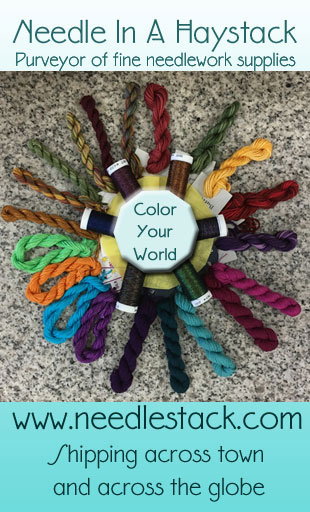
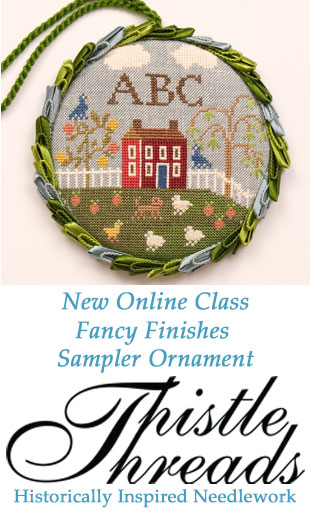

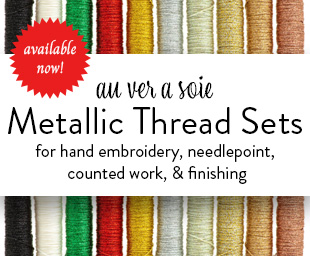
Love it! Thanks for sharing 🙂
When I learned boutis a Loooong time ago, we used a fabric a bit heavier than batiste… It was more of a plain colored quilting fabric (I forget the name right now). And we used cotton “Sugar & Cream” knitting yarn as the padding. It was much easier to control (and make those straight channels) than wadding. It really does make up so very nicely!!
Thank you for the post and video. I will watch it shortly!
I know that quilt! Thanks for misty-eyed memories of London.
I adored the video. I am blessed to have embroidery, needlework, sewing, and quilting experience. I think, unfortunately, that the person who translated the video did not know a lot about some of these topics. I kind of made my own “how to” from the video and cannot thank you enough for sharing the information. I have also ordered her book, since I love her patterns.
Oh, bless you! I’ve been admiring boutis for quite awhile now, even bought a couple of books, and I really, really, want to do it! I’m getting pretty old to do a b8g project, but I just might! Thanks for featuring it!
Ilove what I read today I am looking forward to your kits
Merry Christmas and a Happy Healthy New Year
Marie